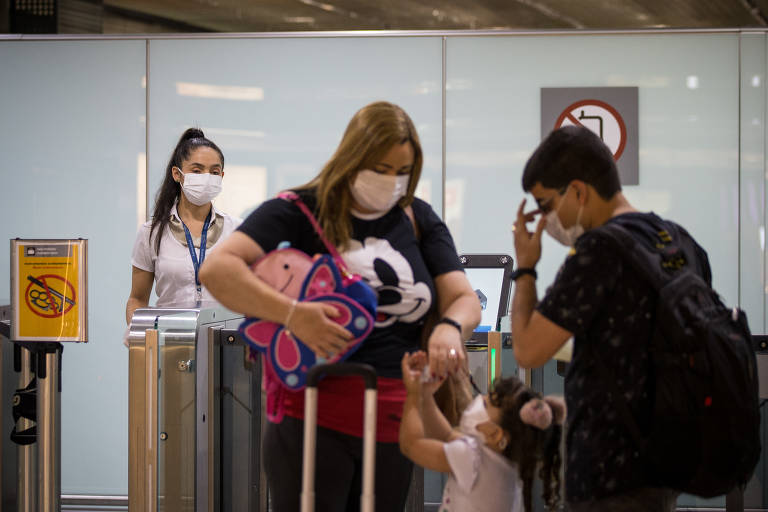The United States government is monitoring the dizzying growth of confirmed cases of coronavirus in Brazil and has not ruled out restricting flights between countries.
According to a member of the American Department of Homeland Security, there will be no ban on flights from Latin America as a whole to the USA, as was done with Europe. Still, the Donald Trump administration has looked with concern to countries like Brazil and Ecuador individually.
The first case of coronavirus in Brazil was confirmed on February 26, and, since the beginning of March, the increase has been exponential. This Monday (23), the country recorded more than 1,800 cases, with 34 dead, while the United States already surpassed 40 thousand cases and 458 deaths.
The adviser to the American government said he was following this significant increase in confirmed cases in an accelerated manner in Brazil and Ecuador (with more than 500 registered cases) and that the attention given to these regions is the same as that given to Europe a few weeks ago.
On March 11, Trump announced the suspension of flights from the Schengen zone (which comprises 26 European countries) to the U.S. and a few days later, including the United Kingdom and Ireland in the restrictive measure.
Thus, it banned the entry of non-residents and foreigners coming from these regions and said that it could extend the period of 30 days, if necessary.
Flights from China, where the first confirmed case of the virus emerged, were suspended in late January.
Last week, Trump said he was partially closing the U.S. borders with Canada and Mexico. From then on, only "essential traffic" would be allowed, without prejudice, said the president of trade relations between countries.
Analysts have said the American president is taking advantage of the pandemic to set in motion several policies that would not necessarily have appeal - and acceptance - if it were not for a state of emergency.
Translated by Kiratiana Freelon
